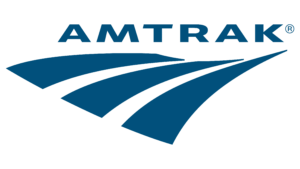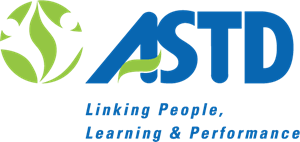Managing and
Supervising Effectively
Successfully Managing “Difficult” People
Series: Essential Management Skills
Course: Successfully Managing “Difficult” People
How can you resolve conflicts less painfully, delegate critical tasks more efficiently, energize your employees and transform resistance into support?
Adjusting your management and personal styles to complement the culture of your work group and your company as a whole can be the catalyst that motivates your teams to heightened productivity.
Utilizing extensive practice in the principles of emotional intelligence, Successfully Managing People underscores the importance of self-awareness in developing sensitivity to and better communication with others. You’ll leave this three-day seminar well versed in the most effective methods for dealing with difficult people…winning cooperation and trust…and ensuring that your people’s values and your organization’s goals are in sync.
"Committed to continually improving management, team, and organization performance."
- How Participants Will Benefit
- Topics We Will Address
- Motivate and direct the employees you rely on—even when they don’t share your values
- Adjust your management and personal style to the needs of different situations
- Get more done by using the appropriate delegation techniques for any given situation
- Resolve conflict more effectively in a wide variety of situations
- Turn difficult people and poor performers into team players
- Win the cooperation and trust from everyone in your organization
- Increase your confidence, leadership skills and personal and professional satisfaction in your job
- Use coaching to guide and direct your team members to improving performance
The Experience of Being a Manager
- How to get people to want to do what they’re supposed to do
- Specific challenges you face when motivating others
Values
- Values and their impact on work life
- How values can have productive and nonproductive results
- Identify value conflicts in yourself and in others
Personal Styles
- Determine your own personal style profile
- Gain insight into the strengths and limitations of your profile
- Use behavioral clues to determine others’ personal styles
- How to work more effectively with other personal profiles
Motivation
- Motivational factors and their impact on behaviors and work settings
- How to tailor your motivational efforts to individual employees and different situations
Listening, Body Language, Giving Feedback and Dealing with Difficult People
- Use active listening to gain information and understand employees’ perspectives
- Effectively apply positive and corrective feedback
- Use appropriate values alignment when dealing with difficult employees
Conflict
- The dimensions of conflict resolution
- Identify your own preferred conflict-resolution styles
- Use different conflict-resolution styles in different situations
Delegation
- Different delegation styles: how and when to use them
- Determine the appropriate delegation style for employees and situations
Successfully Managing “Difficult” People
- Learning Objectives
- Experience of Being a Manager
- Values
- Personal Styles: DISC
- Motivation
-
Listening, Body Language, Giving Feedback,
and Dealing with Difficult People - Conflict
- Delegation
- Understanding Organizational Culture and Subculture
- Emotional Intelligence
- Ethical Leadership
- Action Planning
- Appreciate How the Role of Manager Has Changed in Modern Times
- Understand the Role of Values in Managing People
- Adjust Management and Personal Style to the Needs of Different Situations
- Adopt the Approach Needed to Motivate Different People in Different Situations
- Use Effective Feedback to Deal with Difficult People
- Delegate Tasks in Ways That Develop Your People
- More Effectively Resolve Conflict
- Understand How Your Organization’s and Workgroup’s Culture Shapes the Behavior of the People with Whom You Work
- Practice the Principles of Emotional Intelligence to Achieve Greater Effectiveness
- Appreciate How Good Ethics Is Good Business
- Recognize How Economic and Social Trends Have Changed the Manager’s Role
- Identify the New Language That Reflects This Role
- Define “Successfully Managing People” as “Getting People to Want to Do What They’re Supposed to Do”
- Discuss and Illustrate Specific Challenges They Face When Motivating Others in Today’s Organizations
- Understand the Source of Values
- Understand How Values Impact Work Life
- Describe How Values Can Have Productive and Unproductive Impacts
- Identify the Values Conflicts in Themselves and in Others
- Determine Their Own Personal Profile (DISC Profile)
- Gain Insight into the Strengths and Limitations of Their DISC Profile
- Use Behavioral Clues to Determine Others’ Personal Styles
- Gain Insight into How to More Effectively Work with Other Personal Profiles
- Identify the Important Factors in Motivation
- Appreciate How Different Theories of Motivation Can Be Applied to Their Work Settings
- Tailor Their Motivational Efforts to Individual Employees and Different Situations
- Use Techniques of Active Listening to Better Gain Information and to Recognize the Worth of Employees’ Perspectives
- Effectively Use Positive and Corrective Feedback
- Use Values Alignment as Appropriate When Dealing with Difficult Employees
- Understand the Dimensions of Conflict Resolution
- Identify Your Own Preferred Conflict Resolution Styles
- Understand How to Productively Use Different Conflict Resolution Styles in Different Situations
- Identify the Different Delegation Styles and Understand the Guidelines on How and When to Use Them
- Evaluate Employees and Situations and Determine the Appropriate Delegation Style
- Understand the Importance of Openness to Trying New Delegation Styles with Employees as Appropriate
- Appreciate the Impact of Organizational Culture and Subculture in Work Life
- Examine the Impact of “Cultural Blinders” in Organizations
- Explore the Assumptions That Impact Their Workgroup’s Thinking and Actions
- Identify and Build on the Strengths of Their Workgroup’s Culture
- Describe the Components of Emotional Intelligence
- Assess Your Own Level of Emotional Intelligence
- Develop a Strategy for Improving Your Emotional Intelligence
- Understand That Good Ethics Is Good Business
- Further the Process of Identifying Ethical Standards Appropriate to Their Work
- Tie Ethics to the Process of Adding Stakeholder Value
- Articulate Their Vision for Ethical Leadership in Your Group
- Develop a Specific Plan for Applying Workshop Learning in the Workplace
- Identify People Who Can Support Their Action Plans
- Schedule Progress Reviews










Contact
Pinnacle Performance
Improvement Worldwide
United States of America
+1-617-308-8070
cdevany@ppiw.com
